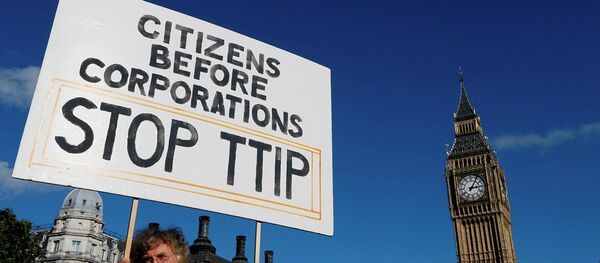At the heart of the issue is "passporting." Under the provisions of the single market, a firm authorized in a European Economic Area (EEA) state is entitled to carry on permitted activities in any other EEA state by either exercising the right of establishment of a branch and/or agents, or providing cross-border services.
The EEA comprises all the 28 EU member states, plus Iceland, Liechtenstein and Norway. Switzerland is not in the EU or the EEA, but is part of the single market. Complicatedly, the passporting scheme does not apply to Jersey, Guernsey or the Isle of Man — all of which are tax havens.
Banking sector provides £18bn in UK income tax revenue: how much remains if EEA passporting ends? (h/t @WSJ) #Brexit pic.twitter.com/OgPbuHUDbv
— William Bain (@William_Bain) July 4, 2016
In negotiating a deal to exit the European Union — the question is whether the remaining 27 countries will allow the UK to remain part of the passporting arrangement. If not, financial services companies that have their headquarters in London will be faced with the possible imposition of tariffs on their services throughout Europe. This would increase costs and reduce profits.
FCA chair speaks on #Brexit, collaboration, and the continued importance of good conduct @TheCityUK https://t.co/zSrxpnbBwq @ExchangeNews
— JWG Group (@jwg_group) 5 July 2016
Nobody knows what the outcome of the divorce talks will be. The UK may be allowed to remain part of the EEA, but not the EU — as with Iceland, Liechtenstein and Norway, in which case it is business as usual. If not, there will have to be separate negotiations. Whichever way, the current uncertainty is causing jitters throughout the financial world.
Merkel and Brussels have outright already refused an EEA+ agreement that gives UK migration control, passporting and single market access.
— Ben Judah (@b_judah) June 29, 2016
Moving Headquarters
Frankfurt has always vied with London to be the financial capital of Europe. Now, Paris, Luxembourg and Dublin are all making overtures to London-based companies. Ironically, both Luxembourg and Dublin are under investigation by the European Commission over sweetheart tax deals for multinationals.
According to the most recent Business Register and Employment Survey (October 2015), 414,600 people are employed in the City of London. This represents 8.5% of Greater London's employment, and 1.4% of the UK's total employment, meaning over 1 in 100 of the UK's workforce are employed in the City.
Altogether, there are over 1,400 financial services firms in the UK that are majority foreign-owned, from around 80 countries. Overseas owned companies represent 46% of all financial services groups worth in excess of US$130 million (£100m). This is nearly three times larger than any other sector of the market and demonstrates the continued international nature of UK financial services.
In the event of the UK losing passporting, many of these will move their headquarter offices into an EU or EEA country in order to continue trading.




